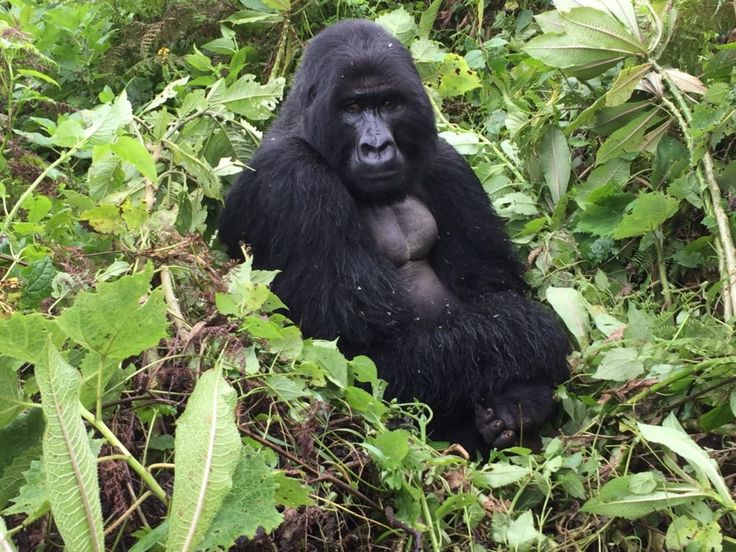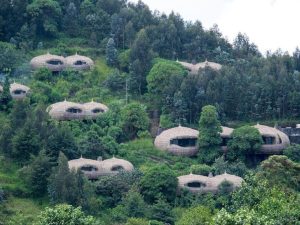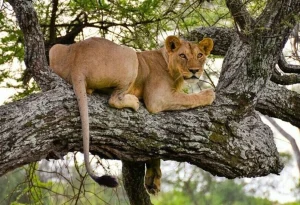Rwanda, often dubbed the “Land of a Thousand Hills,” conjures images of verdant landscapes, majestic gorillas, and a resilient nation forging a brighter future. For a first-time traveler, stepping onto Rwandan soil is an experience that awakens the senses and touches the soul. The vibrant culture, the breathtaking scenery, and the palpable sense of progress create an unforgettable journey. As someone embarking on this adventure for the very first time, I was filled with a mix of excitement and a healthy dose of curiosity. delve into the practicalities of planning such a trip, highlight the incredible experiences Rwanda offers, and answer some of the burning questions that fellow first-time travelers might have, all while aiming for excellent readability and search engine visibility. First Time Traveller Rwanda Experience
Planning Your Rwandan Adventure as First Time Traveller Rwanda Experience
Before embarking on any international trip, meticulous planning is key. For Rwanda, several questions likely spring to mind for prospective visitors.
What are the visa requirements for Rwanda?
Navigating visa processes can often feel daunting. Thankfully, Rwanda has made significant strides in simplifying this. Many nationalities can obtain a tourist visa upon arrival or apply online through the official Rwandan government website. It’s crucial to check the specific requirements for your nationality well in advance of your travel dates to avoid any last-minute hiccups. The ease of the visa process was a pleasant surprise and a great start to my Rwandan experience.
What are the best ways to get to Rwanda?
Kigali International Airport (KGL) serves as the primary gateway to Rwanda. Several major airlines operate flights connecting Kigali to various hubs across Africa, Europe, and the Middle East. Depending on your origin, you might have direct flight options or connecting flights. Once you arrive, the airport is relatively modern and efficient, making the initial entry smooth.
What is the best time of year to visit Rwanda?
Rwanda experiences two dry seasons (June to September and December to February) and two rainy seasons (March to May and October to November). The dry seasons are generally considered the best time for gorilla trekking and other outdoor activities as the trails are drier and the weather more predictable. However, the shoulder seasons can also offer pleasant weather with fewer crowds. My visit during one of the dry seasons afforded stunning views and comfortable trekking conditions.
What vaccinations and health precautions should I take before traveling to Rwanda?
Consulting your doctor or a travel health clinic well before your trip is paramount. Recommended vaccinations for Rwanda often include Hepatitis A and B, Typhoid, Cholera, and Meningitis. Malaria is also a risk in some parts of the country, so preventative medication is usually advised. It’s also wise to pack a basic first-aid kit and ensure you have adequate travel health insurance.
What should I pack for a trip to Rwanda?
Packing for Rwanda depends largely on your planned activities. If gorilla trekking is on your itinerary, sturdy hiking boots, long trousers and shirts (to protect against vegetation and insects), rain gear, and gardening gloves are essential. For general travel, lightweight and breathable clothing is recommended, along with insect repellent, sunscreen, a hat, and a reusable water bottle. Dressing modestly in public places is also culturally respectful.
Is Rwanda an expensive country to visit? What’s the average daily budget?
The cost of a trip to Rwanda can vary significantly depending on your travel style and planned activities. Gorilla trekking permits are a significant expense, but there are also more budget-friendly options for accommodation, food, and transportation. On average, a mid-range traveler might budget anywhere from $150 to $300 per day, excluding the cost of gorilla permits. Accommodation ranges from budget-friendly guesthouses to luxurious lodges, and dining options cater to various budgets.
Are there any cultural customs I should be aware of before visiting Rwanda?
Showing respect for local customs is crucial for a positive travel experience. Rwandans are generally warm and welcoming. Politeness is highly valued, and it’s customary to greet people. Dress modestly, especially in rural areas and religious sites. Photography of sensitive areas like military installations should be avoided. Learning a few basic phrases in Kinyarwanda can also go a long way in showing respect and fostering connections.
Is it safe to travel to Rwanda as a first-time visitor?
Rwanda has made remarkable progress in ensuring the safety and security of its visitors. Crime rates are relatively low in tourist areas. However, it’s always wise to take standard precautions like not displaying large amounts of cash and being aware of your surroundings. The presence of security personnel in tourist areas provides an added sense of safety.
What are some essential Swahili or Kinyarwanda phrases to learn?
While English and French are widely spoken in tourist areas, learning a few basic phrases in Kinyarwanda can enhance your interactions with locals. “Muraho” (hello), “Amakuru?” (how are you?), “Ni meza” (I’m fine), “Murakoze” (thank you), and “Yego” (yes) are a great starting point and are always appreciated.
Should I buy travel insurance for my trip to Rwanda?
Absolutely. Travel insurance is non-negotiable for any international trip. It provides coverage for unexpected events such as medical emergencies, trip cancellations, lost luggage, and theft. Ensure your policy covers the specific activities you plan to undertake, especially gorilla trekking.
Immersing Yourself in Rwanda: Unforgettable Experiences
Rwanda offers a diverse range of experiences that cater to various interests, from wildlife encounters to cultural immersions and poignant historical sites.
What are the must-see attractions in Rwanda for a first-time visitor?
Beyond the famed gorillas, Rwanda boasts a wealth of attractions. Kigali, the capital city, is clean, organized, and offers insightful visits like the Kigali Genocide Memorial. Akagera National Park provides excellent opportunities for wildlife viewing, including the Big Five. Nyungwe Forest National Park is a haven for primates and offers stunning canopy walks. Lake Kivu, with its serene shores and inland beaches, is perfect for relaxation. Musanze, the gateway town to Volcanoes National Park, is vibrant and offers cultural experiences.
Is gorilla trekking in Rwanda worth the cost and effort?
Without a doubt. Gorilla trekking in Rwanda is a once-in-a-lifetime experience that transcends mere wildlife viewing. Witnessing these magnificent creatures in their natural habitat is profoundly moving and humbling. The cost of the permit contributes directly to conservation efforts and the local communities, making it a sustainable form of tourism. While the trek can be physically demanding, the reward of spending an hour in the presence of a gorilla family is immeasurable.
What is the gorilla trekking experience like? What should I expect?
The gorilla trekking experience typically begins with an early morning briefing at the park headquarters. You’ll be assigned to a specific gorilla family based on your fitness level and preferences. Experienced trackers who have been monitoring the gorillas will lead you through the forest. The trek can vary in length and difficulty, ranging from a few hours to a full day, depending on the location of the gorillas. Once you locate a family, you’ll have a precious hour to observe them as they interact, feed, and play. It’s crucial to follow your guide’s instructions and maintain a respectful distance.
Are there other wildlife experiences in Rwanda besides gorilla trekking?
Absolutely! Akagera National Park offers a classic African safari experience. Here, you can spot lions, elephants, giraffes, zebras, hippos, and a plethora of birdlife. Game drives, boat safaris on Lake Ihema, and guided walks provide diverse ways to explore the park’s varied landscapes. Chimpanzee trekking in Nyungwe Forest is another incredible primate encounter, offering the chance to observe these intelligent and playful creatures in their natural habitat.
What is it like to visit the Kigali Genocide Memorial?
Visiting the Kigali Genocide Memorial is a deeply moving and essential experience for understanding Rwanda’s history and its remarkable journey towards reconciliation. The memorial provides a poignant and informative account of the 1994 genocide against the Tutsi. Through exhibits, photographs, and personal testimonies, it honors the victims and educates visitors about the causes and consequences of the genocide. It’s a somber but ultimately hopeful reminder of the resilience of the human spirit.
What cultural experiences can I have in Rwanda?
Rwanda boasts a rich and vibrant culture. Visiting local markets offers a glimpse into daily life and provides opportunities to purchase traditional crafts. Attending traditional dance performances showcases the energy and artistry of Rwandan culture. Engaging with local communities through organized tours can provide insights into their customs and traditions. Exploring local art galleries and craft centers is also a great way to appreciate Rwandan creativity.
Are there opportunities for hiking and exploring nature in Rwanda?
Beyond gorilla trekking, Rwanda is a hiker’s paradise. Volcanoes National Park offers various hikes, including to the summit of Mount Bisoke and to the Dian Fossey Tomb. Nyungwe Forest National Park is crisscrossed with numerous trails, leading to waterfalls, viewpoints, and primate habitats. The canopy walk in Nyungwe offers breathtaking views of the forest canopy. Even around Lake Kivu, there are opportunities for gentle hikes and nature walks.
What is the food like in Rwanda? What are some local dishes I should try?
Rwandan cuisine is flavorful and often features fresh, locally sourced ingredients. Staple foods include beans, rice, potatoes, sweet potatoes, and cassava. Popular dishes include brochettes (grilled meat skewers), agafima (a thick porridge made from sorghum or maize flour), isombe (mashed cassava leaves with vegetables), and a variety of flavorful stews. Fresh fruits like mangoes, papayas, and pineapples are readily available and delicious. Don’t miss the opportunity to try local Rwandan coffee, which is renowned for its quality.
What are some ethical and sustainable tourism practices to follow in Rwanda?
Supporting responsible tourism is crucial for ensuring the long-term well-being of Rwanda’s people and its natural environment. When choosing tour operators and accommodations, opt for those that prioritize local employment and community benefits. Respect wildlife by maintaining a safe distance and following your guide’s instructions. Avoid purchasing products made from endangered species. Be mindful of your waste and dispose of it responsibly. Support local artisans by purchasing their crafts directly.
What are some unique souvenirs I can buy in Rwanda?
Rwanda offers a variety of unique and handcrafted souvenirs. Intricately woven baskets, colorful Imigongo (traditional Rwandan art using cow dung), wood carvings, and locally produced coffee and tea are popular choices. Purchasing souvenirs directly from local artisans and cooperatives helps support their livelihoods.
Practicalities and Personal Reflections: Navigating the Journey
Beyond the planning and the experiences, the practical aspects of traveling and the personal impact of the journey are equally important.
How easy is it to get around Rwanda? What are the transportation options?
Getting around Rwanda is relatively straightforward. In Kigali and other major towns, taxis and motorcycle taxis (motos) are readily available. For longer distances, private car hire is a common option, especially for exploring national parks. Public buses connect major towns and are a more budget-friendly option, although they can be crowded. For organized tours, transportation is usually included. The road network in Rwanda is generally well-maintained, especially the main arteries. First Time Traveller Rwanda Experience
What is the accommodation like in Rwanda? Are there options for different budgets?
Rwanda offers a range of accommodation options to suit various budgets and preferences. In Kigali, you’ll find international hotels, boutique guesthouses, and budget-friendly hostels. Near the national parks, there are lodges ranging from rustic campsites to luxurious eco-lodges. Booking your accommodation in advance, especially during peak season, is highly recommended.
What is the internet and phone connectivity like in Rwanda?
Mobile phone penetration is quite high in Rwanda, and SIM cards are readily available for purchase upon arrival. Mobile internet access is generally good in urban areas, although it can be less reliable in more remote regions. Wi-Fi is offered at many hotels and lodges, but the speed can vary.
What is the local currency in Rwanda, and how can I exchange money?
The local currency is the Rwandan Franc (RWF). It’s advisable to exchange some currency upon arrival at the airport or at authorized exchange bureaus in major towns. US dollars, Euros, and British Pounds are generally accepted for exchange.
Are credit cards widely accepted in Rwanda?
Credit cards are accepted at most major hotels, restaurants, and tourist establishments in Kigali and larger towns. However, it’s always wise to carry some cash, especially when visiting smaller towns and markets. ATMs are also available in major urban centers.
What is the power plug type in Rwanda?
Rwanda uses Type C and Type J power plugs. If your electronic devices use a different plug type, you’ll need to bring a universal adapter. The standard voltage is 230V and the frequency is 50Hz.
What are some tips for staying healthy while traveling in Rwanda?
In addition to vaccinations and malaria precautions, practicing good hygiene is essential. Drink bottled or treated water, avoid ice in drinks unless you’re sure of its source, and eat at reputable establishments. Be mindful of sun exposure and use sunscreen. Insect repellent is crucial, especially in the evenings and in rural areas.
How can I interact respectfully with the local people in Rwanda?
Rwandans are known for their politeness and hospitality. Greet people with a smile and a simple “Muraho.” Dress modestly, especially in rural areas and religious sites. Ask for permission before taking photographs of people. Be patient and understanding, as things may sometimes move at a different pace than you’re used to. Supporting local businesses and respecting their customs will be greatly appreciated.
What are some common scams to be aware of in Rwanda?
While Rwanda is generally safe, it’s always wise to be aware of common scams that can affect tourists worldwide. Be cautious of overly friendly strangers offering unsolicited help or deals that seem too good to be true. Agree on taxi fares beforehand and be wary of inflated prices for goods and services.
What are some resources for learning more about Rwanda before my trip?
There are numerous resources available to help you learn more about Rwanda before your trip. Travel guidebooks, websites like the official Rwanda Tourism Board website, documentaries, and blogs can provide valuable information about the country’s history, culture, and attractions. Reading firsthand accounts from other travelers can also offer useful insights. First Time Traveller Rwanda Experience
What were my initial impressions of Rwanda as a first-time visitor?
My initial impressions of Rwanda were overwhelmingly positive. The cleanliness and organization of Kigali were immediately striking. The lush green landscapes truly live up to the country’s nickname. But beyond the visuals, it was the warmth and resilience of the Rwandan people that left the deepest impression. There’s a palpable sense of optimism and progress that is truly inspiring.
What surprised me the most about Rwanda?
Perhaps the biggest surprise was the sense of peace and tranquility that permeated the country, especially considering its recent history. The emphasis on unity and reconciliation is evident, and the country feels remarkably safe and welcoming. First Time Traveller Rwanda Experience
What were some of the highlights of my trip to Rwanda?
Gorilla trekking was undoubtedly a profound highlight, an experience that words can hardly do justice to. But exploring Akagera National Park and witnessing its recovering wildlife populations, the poignant visit to the Kigali Genocide Memorial, and the warm interactions with local people were equally memorable. First Time Traveller Rwanda Experience
What challenges did I face during my trip, and how did I overcome them?
Language barriers were occasionally a minor challenge in more rural areas, but a smile and a few basic Kinyarwanda phrases often bridged the gap. The physical exertion of gorilla trekking was demanding but ultimately rewarding. Overall, the challenges were minimal and easily overcome.
What advice would I give to other first-time travelers planning a trip to Rwanda?
Plan thoroughly, be open to new experiences, embrace the local culture, and most importantly, be prepared to be moved by the beauty and resilience of this remarkable country.
How has my experience in Rwanda changed my perspective?
My journey to Rwanda has been a powerful reminder of the strength of the human spirit and the capacity for healing and progress. It has also deepened my appreciation for the natural world and the importance of conservation.
Would I recommend Rwanda as a travel destination? Why or why not?
Absolutely, without hesitation. Rwanda offers a unique and enriching travel experience that goes beyond the typical tourist destinations. Its stunning natural beauty, incredible wildlife encounters, rich culture, and inspiring story make it a truly unforgettable place to visit. First Time Traveller Rwanda Experience
What are my lasting memories of Rwanda?
Your lasting memories of Rwanda will be the gentle gaze of a silverback gorilla, the vibrant colors of the local markets, the breathtaking views from the hills, and the warm smiles of the Rwandan people. First Time Traveller Rwanda Experience
What else would I like to explore?
Definitely. There is so much more to explore in Rwanda, from the shores of Lake Kivu to the trails of Nyungwe Forest. I would love to delve deeper into the local culture and witness firsthand the continued progress of this remarkable nation. Rwanda, the Land of a Thousand Hills, is more than just a destination; it’s an experience that stays with you long after you’ve left its verdant slopes. For a first-time traveler, it’s a journey of discovery, learning, and profound connection. First Time Traveller Rwanda Experience
If you’re seeking an adventure that combines breathtaking natural beauty with meaningful cultural encounters and a powerful story of resilience, then Rwanda should be at the top of your list. Prepare to be captivated by its charm and inspired by its spirit.




